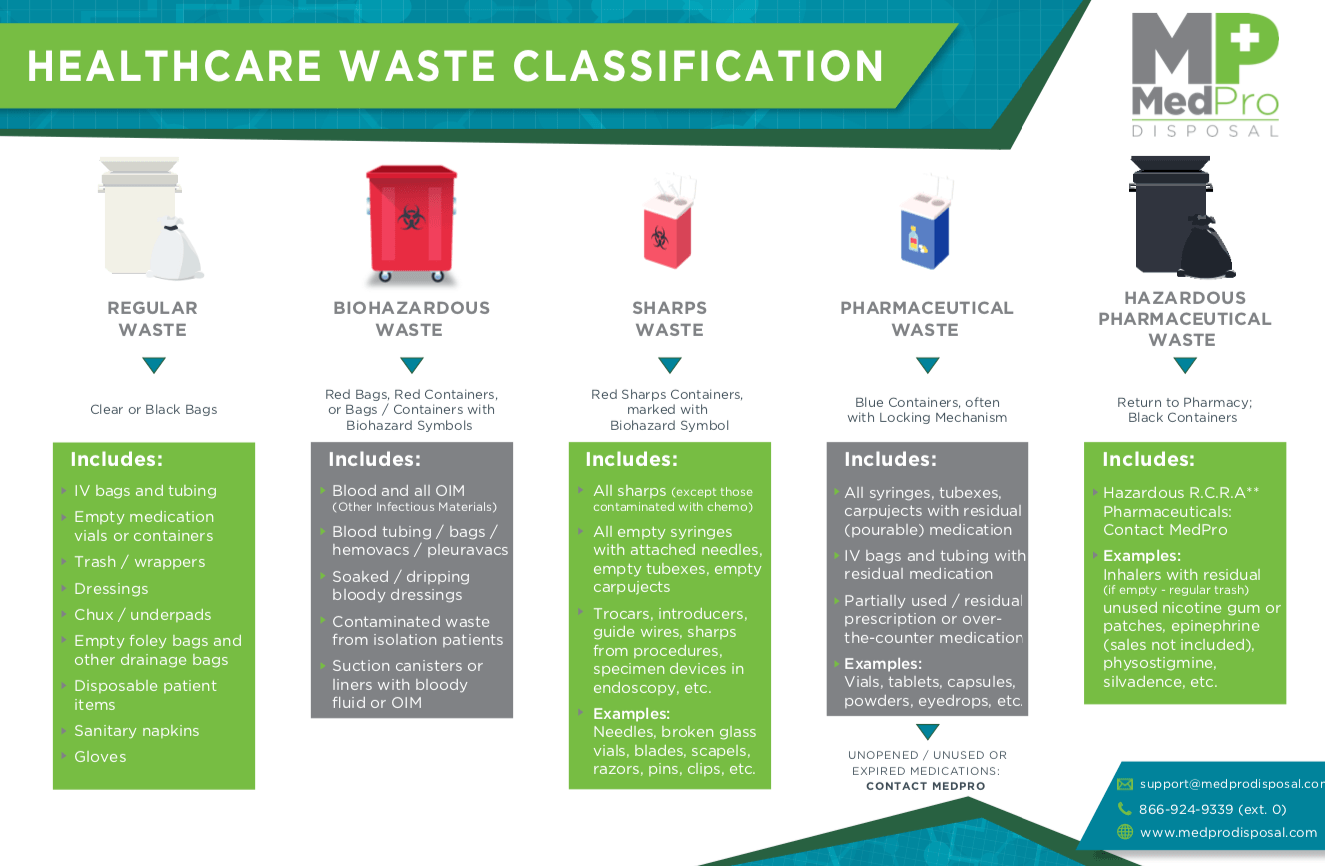Comprehending the Various Types of Waste Disposal Methods
In the realm of waste administration, the variety of disposal strategies readily available today is vast and varied, each method serving an unique function in attending to the obstacle of garbage disposal. click here. From reusing approaches that intend to give new life to products, to the elaborate procedures of harmful waste management, the landscape of waste disposal is intricate yet essential for environmental sustainability. Recognizing the subtleties of these different strategies not only clarifies the significance of liable waste administration yet likewise prompts us to rethink our technique in the direction of waste disposal in a rapidly evolving globe

Recycling Methods
Reusing approaches are critical for sustainable waste monitoring methods in both residential and industrial setups. medical waste disposal. By implementing effective recycling methods, a significant amount of waste can be drawn away from garbage dumps, preserving natural sources and decreasing the environmental influence of production processes
In household areas, curbside recycling programs play a vital function in encouraging houses to different recyclable products from basic waste. Products such as paper, plastics, glass, and metals can be arranged and accumulated for handling right into new products, decreasing the requirement for basic materials and energy-intensive manufacturing processes.
Industrial facilities likewise count on reusing techniques to decrease waste generation and promote a circular economy. By applying closed-loop systems, businesses can recycle materials within their production procedures, reducing costs and ecological impact. medical waste disposal. In addition, commercial recycling programs usually involve partnerships with specialized reusing facilities to make certain that products are properly sorted, refined, and rehabilitated into the supply chain
Composting Strategies

Aerated fixed pile composting entails mixing natural waste products in a big heap and frequently transforming it to guarantee correct aeration. This method is well-suited for smaller-scale operations and houses.
In-vessel composting includes positioning organic waste in a closed container with regulated conditions for temperature and oygenation. This approach works for taking care of food waste in urban areas. Last but not least, windrow composting includes developing long rows of natural waste and regularly turning them to advertise disintegration. This strategy is typically utilized in farming setups.
Land Fill Disposal
Garbage dump disposal is a frequently used method for managing waste that can not be reused or composted. Methane gas, a result of decaying natural waste in garbage dumps, is frequently collected and made use of as a resource of sustainable energy. Efforts to lower dependence on landfills consist of advertising waste reduction, reusing, and checking out alternative waste disposal approaches to lessen the environmental impact connected with conventional land fill disposal methods.

Waste-to-Energy Incineration
Incineration of waste for power generation is a technique significantly being considered as an option to typical landfill disposal methods. Waste-to-energy incineration entails the burning of waste materials at heats, normally in specialized centers designed to produce power or heat through the process - click here. This method not just reduces the volume of waste that would certainly or else be destined for landfills however additionally utilizes the warmth generated during incineration to produce power
Among the key advantages of waste-to-energy incineration is its capability to produce power while reducing the environmental effect contrasted to standard land fill disposal methods. By converting waste into energy, this technique aids in reducing greenhouse gas emissions and reliance on nonrenewable fuel sources for power generation. In addition, waste-to-energy facilities are equipped with sophisticated air pollution control innovations to alleviate possible ecological toxins released throughout the combustion process.
Hazardous Waste Administration
.jpg)
Considering the vital importance of responsible waste monitoring methods, especially in the realm of ecological sustainability, the emphasis now shifts in the direction of the complex domain of Hazardous Waste Monitoring. Harmful waste presents significant threats to both human wellness and the atmosphere, necessitating customized handling and disposal methods. Common instances of contaminated materials consist of chemicals, batteries, chemicals, and electronic waste.
Hazardous Waste Administration entails the identification, collection, transport, therapy, and disposal of materials considered potentially link hazardous or hazardous. This procedure needs adherence to strict guidelines and guidelines to alleviate unfavorable effect on environments and public health. Numerous methods are utilized in managing harmful waste, consisting of recycling, safe land fills, encapsulation, and chemical treatment.
Correct Contaminated Materials Administration is crucial for protecting against contamination of soil, water resources, and air contamination. It is important for sectors, laboratories, health care centers, and various other generators of dangerous waste to carry out durable management methods, training programs, and emergency situation response prepares to make certain the safe handling and disposal of these materials. Failure to take care of contaminated materials appropriately can have significant repercussions, emphasizing the importance of persistent and accountable techniques in this field.
Conclusion
In final thought, waste disposal methods play an essential role in handling and reducing the impact of waste on the atmosphere. It is essential for individuals and industries to understand the different waste disposal strategies available and choose the most appropriate approach for lasting waste management.
In the world of waste management, the variety of disposal strategies offered today is vast and varied, each approach serving a distinct objective in resolving the difficulty of waste disposal. click here. From recycling approaches that intend to provide new life to products, to the complex processes of unsafe waste monitoring, the landscape of waste disposal is complicated yet essential for ecological sustainability. Recognizing the nuances of these various methods not only sheds light on the importance of liable waste administration but also motivates us to reconsider our approach in the direction of waste disposal in a rapidly advancing globe
Efforts to lower reliance on land fills consist of promoting waste decrease, recycling, and discovering alternate waste disposal approaches to reduce the ecological footprint linked with conventional land fill disposal methods.
It is vital for individuals and sectors to recognize the different waste disposal strategies available and select the most ideal technique for lasting waste management.